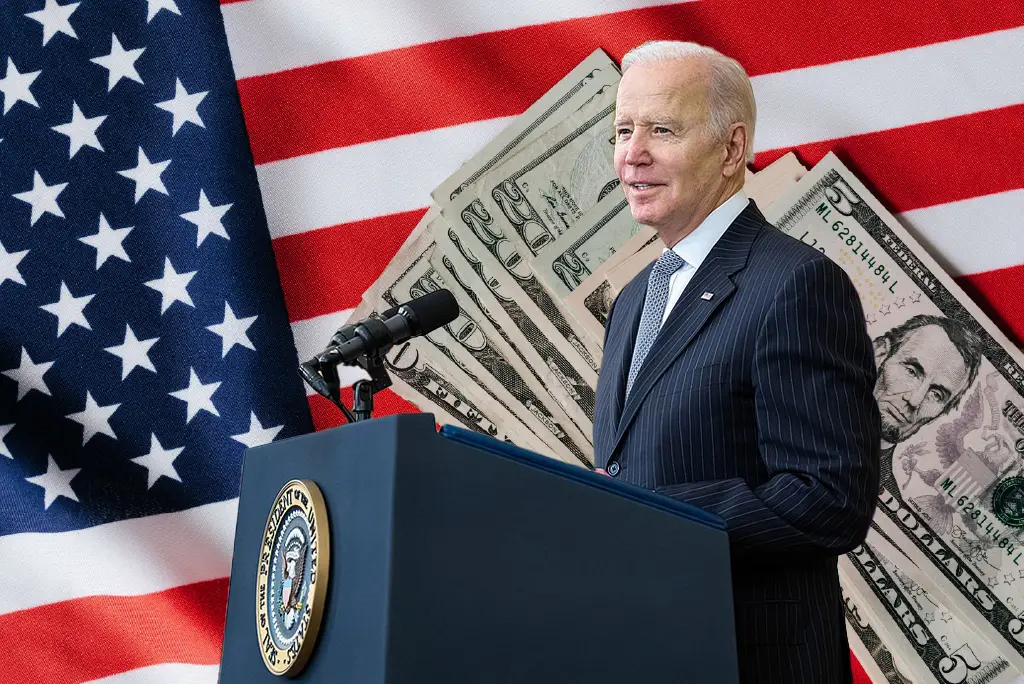President Joe Biden’s 2024 budget proposal would increase taxes by over $4.5 trillion during the next decade. Nearly all of the new revenue would come from high-income households and corporations. The majority of the revenue proposals are familiar. These proposals include tax rate increases on households making $400,000 or more and corporations. The proposals also include significant changes in the taxation of multinational corporations. Additionally, the proposals include limitations on very large retirement accounts.
Tax Agenda: A Marker for Difficult Budget Negotiations
The current Congress may never approve Biden’s tax agenda. However, his fiscal plan sets a marker for challenging budget negotiations later this year. Should he decide to pursue another term in office, his tax platform for the 2024 campaign will be shaped accordingly.
Individual Income Tax Rates
As in the past, Biden proposes raising the top tax rate to 39.6%. The proposition suggests that individuals earning $1 million or above would be subject to equivalent top rates for both capital gains and dividends. For these high earners, the capital gains and dividends tax rate would be the same as for wage and salary income. Experts project that this plan will generate approximately $450 billion in revenue over the coming ten years.
The Net Investment Income Tax and Additional Payroll Tax
The proposal entails imposing an additional 5% tax on investment and business income for those earning $400,000 or more. Currently, this group’s tax on investment and business income is 3.8%. In addition to the 5% tax on investment and business income, there would also be a 5% Medicare tax on the salaries and wages of those earning $400,000 or more. Experts expect that expanding the Net Investment Income Tax (NIIT) to include active business income will generate approximately $645 billion for Medicare’s Hospital Insurance Trust Fund.
Minimum Tax on the Wealthy
Biden proposes imposing a 25% minimum tax on the highest-income 0.01% of households, raising about $436 billion.
Refundable Tax Credits
The plan proposed by Biden involves raising the Child Tax Credit (CTC) from $2,000 to $3,000 for children six years or older and to $3,600 for children under the age of six through to the conclusion of 2025, thereby restoring the 2021 CTC version. They would permanently make the credit refundable and offer it as monthly payments. Additionally, the Earned Income Tax Credit for individuals without dependent children residing with them would be expanded indefinitely. Implementing these proposals would cause a revenue reduction of around $600 billion.
Corporate Income Tax
Biden’s plan would raise the tax rate for corporations from 21% to 28%, resulting in a revenue increase of $1.3 trillion over the next decade. This increase in the tax rate would result in a revenue increase of $1.3 trillion over the next decade. However, this rate would still be lower than the previous 35% top rate paid by corporations prior to 2018.
International Tax
Biden is proposing a package of international tax reforms that would repeal some provisions of the Tax Cuts and Jobs Act (TCJA) and revise others. Additionally, he would provide $115 billion in “support for research and experimentation,” and in total, the international changes would raise about $667 billion in new revenue.
Stock Buyback Tax
Biden proposes to raise the tax on stock buybacks by large publicly traded companies from 1% to 4%, raising about $237 billion.
Oil and Gas Tax Preferences
Biden’s past efforts to convince Congress to repeal tax breaks for oil and gas companies got nowhere. The latest budget proposed by Biden endeavors to reintroduce a policy that could generate approximately $36 billion.
Cryptocurrency
Biden is suggesting a rule that prohibits investors from claiming tax losses on investments they immediately repurchase after selling, a technique referred to as a wash sale. He is proposing a comparable regulation for cryptocurrency sales, which he claims would generate approximately $24 billion in revenue. Additionally, an excise tax would be imposed on the electricity usage of crypto mining, which would eventually climb to 30%.
Mega-IRAs
Biden proposes to limit the size of tax-favored retirement accounts for those with incomes over $400,000 ($450,000 for joint filers), raising about $23 billion.
Carried interest
For decades, Democrats have been pushing for the taxation of compensation of hedge fund and private equity managers as ordinary income rather than capital gains. Despite this, the gain in revenue would be a relatively modest $6 billion. Nonetheless, Biden is attempting to pursue this policy once again.
IRS funding
The preceding year, Congress granted an additional $80 billion in funding to the Internal Revenue Service (IRS). This funding is set to remain available until 2031. Biden proposes an additional $29 billion in 2032 and 2033 to support the IRS further. He is also offering some new near-term funds to improve tax administration. According to the Treasury, the new spending would generate an additional $134 billion in tax collections.
